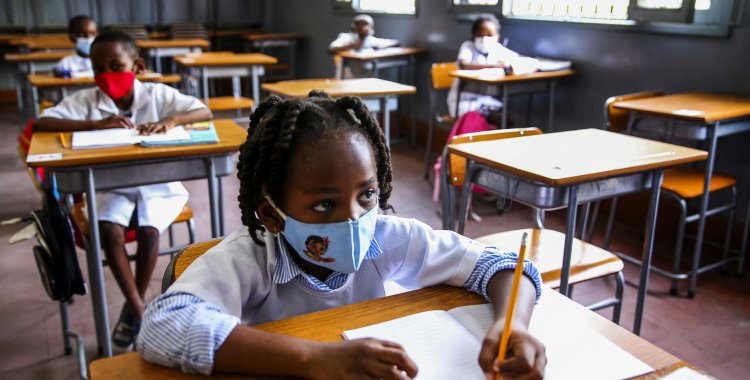In a report released this week, entitled "Inclusive Public Policy from a Gender Perspective", the non-governmental organization Mosaiko presents the results of 149 group interviews and surveys conducted between June 2019 and November 2020 among 4692 households in 15 municipalities in the provinces of Uíge, Luanda, Benguela, Huambo and Huíla.
In the chapter dedicated to Education, the report concludes that, although in primary education the data indicate that the goal of gender parity has improved, the dropout rate among girls increases exponentially from the age of 14, reaching 54 percent at 15, 63 percent at 16 and 92 percent at 17.
At the same ages, the dropout rate among boys is 35, 53 and 43 percent.
"This loss of educational potential, on the part of girls, has repercussions on access to formal employment, decision-making autonomy in different areas of youth and adult life, participation in social life and others", write the authors of the study.
In an interview with Lusa by telephone, Verónica Pereira, coordinator of Mosaiko's communication office, said that the organization recently held a meeting in the mining town of Jamba and invited a group of teachers and another group of secondary school students to participate.
"We had a perfect relationship of what the research shows us: 19 participants were boys and only four were girls," she said.
According to the official, the girls' dropping out of school is linked to factors such as early pregnancy, but also because they are more responsible for household chores, namely to take care of the home, siblings or already their own family.
"On the other hand, we also see that the issue of resources is not only related to the lack of resources in the family. It is also the lack of resources in the school, which is often not prepared to take in girls at this stage," she said, noting that it is at this age that puberty occurs.
Many of the schools, she stressed, do not have facilities such as toilets and running water to allow girls access to hygiene and some privacy and they end up absent during their menstrual period. "That then prompts them to drop out at school," she lamented.
Another issue highlighted by the study is the distance girls have to travel to school and the security risks that this entails.
Even in the school environment, she stressed, "the issue of harassment and sexual abuse by school staff and classmates is also still quite remarkable.
For these reasons, the first recommendation of the Mosaiko report to the Ministry of Education is to carry out a survey of the conditions of schools and access to school from a gender perspective, taking into account indicators such as number of toilets for girls, toilets with running water, access roads to school with lighting and other means that contribute to the permanence of girls and girls in school.
It also suggests the creation of breastfeeding rooms in secondary and higher education schools and assistance offices for students in situations of vulnerability, including pregnant girls, in order to contribute to a culture of less discrimination against the girls they face. an unplanned pregnancy situation.
The organization also asks for the inclusion of gender awareness in teacher training, both in basic and lifelong training.
For Verónica Pereira, raising awareness of gender issues must start much earlier, changing the way girls are educated.
She exemplified by the fact that most class delegates are boys.
"And it's a choice made by the teacher. The teacher chooses the male delegates and the girls are chosen for cleaning girls, who are responsible for taking care of cleaning the room", she exemplified.
"It's an articulation that goes from the family, creating the space for the girl and the boy to express themselves and have a participation in family matters", to the school, where they must find "gender-sensitive teachers", she concluded.
NGO asks for toilets in schools to prevent girls from dropping out of school
The Angolan organization Mosaiko asks the Government to guarantee the existence of toilets and lighting in the accesses to schools to prevent girls from dropping out of school, which from 15 years onwards is more than 50 percent.







